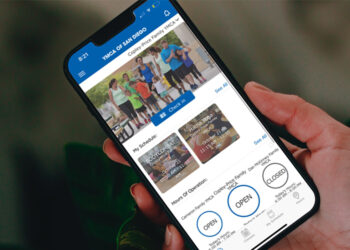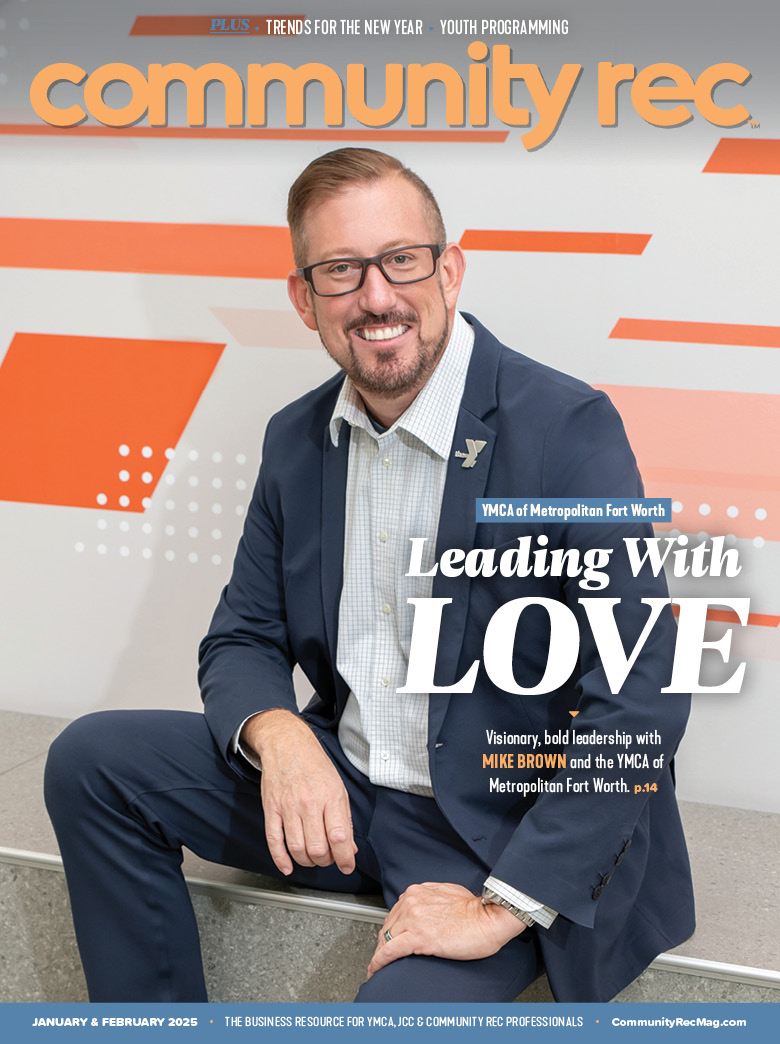In The Last Word, we sit down with an industry expert to share their wealth of knowledge. In the 2022 January/February issue, the conversation features Jak Teel, the Parks and Recreation director at the City of Cottonwood, Arizona.
1. How did you get started in the community recreation industry?
When I was 14, most of my friends were 15 and they had all decided to apply to become lifeguards at our local pool. We were all pretty inseparable so I would often tag along with them to work. The following year when I turned 15, I decided if I was going to be at the pool all summer anyway I might as well be getting paid and provide a service. Little did I know that summer spent lifeguarding would be the catalyst of my career in parks and recreation. As luck would have it, I still work at that same facility all these years later.
2. What’s been the key to your team’s success? What are you most proud of?
Success can come in all shapes and sizes. It is all just relative to how you frame it in the context of what you are working on. For us, our team continues to find success because of the culture we have built. Our motto is “whatever it takes” and I realize that seems cliché. However, when we dissect it and understand the intent behind our meaning it paints a much clearer picture. For our team, doing whatever it takes means we think creatively to problem solve, we work hard and efficiently, and we communicate as a team. I have always tried to teach leadership as a linear process, we are all on the same team and although I may be the final decision maker, whoever is best to lead the project will do so. Our team motto forces us all to be better leaders and more supportive followers.
3. What has been one of the biggest accomplishments of your career?
Most recently, I was able to finish a project where we were able to create a new park for our residents which has not happened in over 25 years. The construction of the playground equipment was a rewarding feat of its own. However, what I was most proud of was the involvement we had from our community throughout the entire process of the project, from identifying the need in our master plan to the community input process to select the equipment, all the way to the community build that capped off the project. As the project manager, I was able to connect on multiple different levels with our community to ensure the project was inclusive and met the needs of the entire community.
4. What has been one of the biggest challenges you have faced in your career?
Although I am very proud to have worked for the same organization for my entire career, it has not come without its issues. When I accepted my first full-time position with the City of Cottonwood, I was only 19 years old. Although I was ready, willing and able, I still had miles and miles of things I needed to learn to be successful at such a young age. Our community at the time was largely made of retirees and the age gap between myself and our service population was a fairly large one. Though I have always been good at connecting with people regardless of age, it took time to earn the respect and trust of my community at such a young age. Once I began to prove myself to my community, it then became about balancing the needs of everyone to whom I felt obligated. When the needs of the community, my superiors and my organization all aligned it was easy. However, when they weren’t it was challenging to navigate and figure out what I needed to do to be seen as successful in all my obligations. As I continued to move upwards in the organization I had to adapt and evolve my thought process. As the community mix changed along with our growing community, so did my approach.
5. What is one lesson you have learned that other community recreation professionals can learn from?
As public servants, we are tasked with a never-ending list of things we need to do. This sometimes feels impossible and no matter how hard we try to please everyone, we always seem to fall short. Take the time to be involved at all levels of the organization and catch people doing things right and celebrate them when you see it. I make it a point to always be on the lookout to find a reason to celebrate as a team. This is important to the culture and provides a foundation where people feel acknowledged and appreciated. When people feel appreciated, they are more willing to be part of what you are building and it creates ownership. In turn, this leads to empowered employees who understand no matter what it is, how big or small the issue, it is everyone’s job.
6. Tell us one fact about yourself others may not know.
When I was younger, I used to be a fairly big risk taker and enjoyed the sport of parkour, or freerunning, as some people know it. This was a sport I was passionate about and took pride in doing. Although my body pays for it now, it did provide me with an opportunity to shoot a commercial for ESPN when I was 17 years old.










